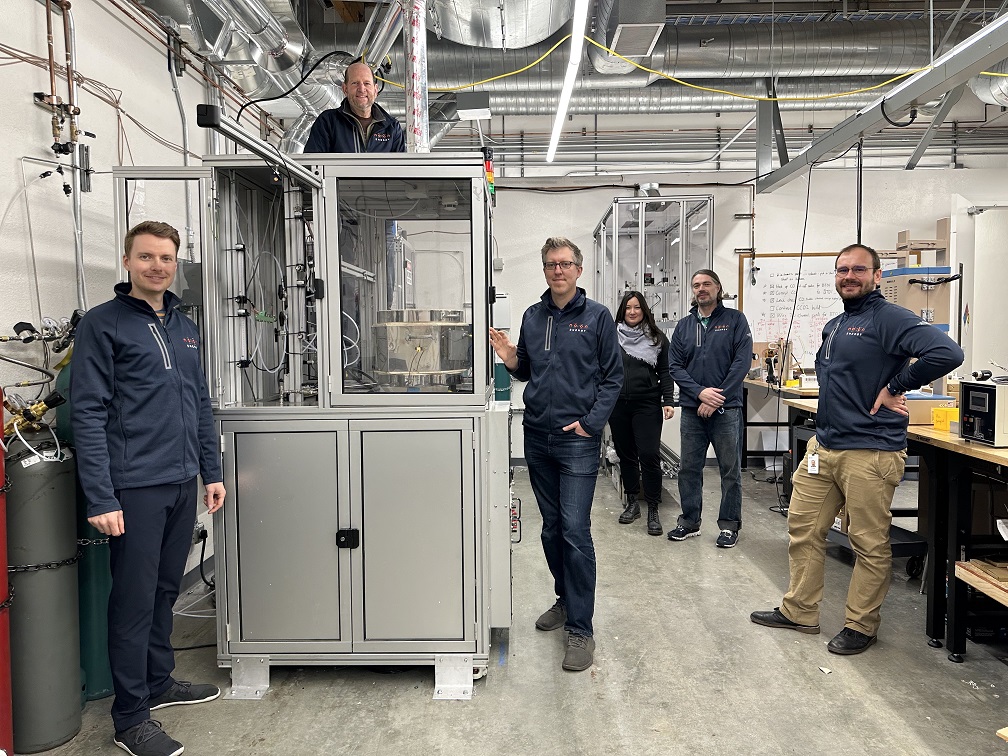
Noon Energy, developer of a novel carbon-oxygen battery aimed at providing long durations of energy storage, has raised US$28 million in a Series A funding round.
The latest company to claim a breakthrough in electrochemical storage technology that could be widely produced at low cost, its technology stores energy in carbon and oxygen and not metals, as conventional batteries do.
Series A investors include climate tech venture capital (VC) group Clean Energy Ventures and Aramco Ventures, the VC arm of Saudi Arabian oil and energy company Aramco.
Chris Graves, the company’s founder and CEO, is a former NASA scientist who worked on the Mars Rover, explained that the technology works in a similar way to how plants photosynthesise. Basically, it splits CO2 into carbon and oxygen.
Try Premium for just $1
- Full premium access for the first month at only $1
- Converts to an annual rate after 30 days unless cancelled
- Cancel anytime during the trial period
Premium Benefits
- Expert industry analysis and interviews
- Digital access to PV Tech Power journal
- Exclusive event discounts
Or get the full Premium subscription right away
Or continue reading this article for free
Storing energy “in the same air-abundant molecules that nature itself uses, rather than rare metals, is key to our fundamental advantages in cost, sustainability, and energy density,” Graves said.
Core components from the technology have been in use on the Mars Rover’s MOXIE system – the 300W device that is prototyping how oxygen could be pulled from the carbon dioxide-based Martian atmosphere, which Noon claimed is serving as a proof of concept (POC).
Journey across ‘Valley of Death’ begins for carbon-oxygen startup
Perhaps the closest comparisons that readily come to mind from fellow startups are Form Energy’s iron-air ‘rust’ battery, and Enervenue’s nickel-hydrogen battery.
Enervenue because it too is taking a technology tried out in space and adapting it for terrestrial use, and Form Energy because it has a novel battery tech based on abundant materials in the process of commercialisation. All three are aiming at providing durations of storage longer than the typical four or even eight-hour limits of lithium-ion.
Enervenue has begun serial production of its units and is targeting mass production to begin soon, claiming to already have over 5GWh of customer orders. Form Energy has a utility pilot project starting this year and has announced the site in West Virginia where it plans to build a US factory. Form Energy’s raise of US$450 million in a Series C round in 2022 placed it among the top five recipients of VC funding in the energy storage space for the year, according to market research by Mercom Capital Group.
Noon is still clearly at an earlier stage of that commercialisation, a process often referred to as the ‘Valley of Death’ due to the high barriers that exist from lab to mass production.
Noon said that it has been able to achieve a 50x scale-up of its technology in the last year and two months, but it will still be around two years before the carbon-oxygen battery is brought to market.
“Noon Energy’s technology has far greater potential as modular, scalable and low-cost long-duration energy storage than any other approach we’ve ever seen, and therefore can enable any system, from a single home, to an entire grid, to run on 100% solar and wind,” Clean Energy Ventures co-founder and managing partner David Miller said.
Apparently only requiring a fraction of its carbon-oxygen devices to be made with critical materials, and without the need for lithium and cobalt, Noon also believes production can be uncoupled from today’s energy storage supply chain challenges and even claimed three times the energy density of lithium-ion can be achieved at one-tenth of the cost.
It now remains to be seen if that will be proven at successively larger scales and higher production volumes.





